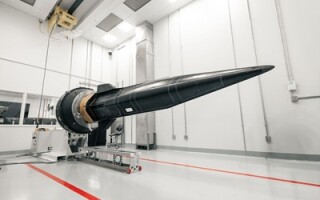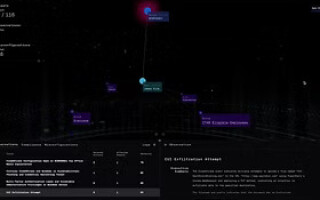Fischer Connectors’ rugged solutions feature USB 3.2 Gen 2 up to 10 Gbit/sec with optimal signal integrity
Press ReleaseSeptember 12, 2024

SAINT-PREX, Switzerland. Data protocols are constantly evolving to enable interoperability and reliable transfer of increasing amounts of data at the highest speeds between more and more connected devices. To address this technological challenge, Fischer Connectors is expanding its platform capabilities to meet the most demanding connectivity requirements for high-speed data transfer using the USB 3.2 Gen 2 protocol up to 10 Gbit/s.
Fischer Connectors’ high-speed solutions with USB 3.2 Gen 2 up to 10 Gbit/s meet the versatile requirements of a wide variety of applications, from surgical equipment in operating rooms and small computers and peripherals for soldiers, to outdoor test & measurement applications and civil and military drones. (Pictured from left to right: Fischer Core Series, Fischer MiniMax™ Series, Fischer UltiMate™ Series.) [© Conextivity Group 2024]
The Swiss-based company has developed new USB 3.2 connectors and cable assembly solutions in three of its flagship product lines to meet signal integrity and harsh environment requirements for medical, defense, industrial and instrumentation applications such as:
• Surgical equipment in the operating room, USB3 cameras in orthopedic surgery or endoscopic devices, and instrumentation applications such as assembly production lines and outdoor inspections in radiation and/or contaminated areas, with the versatile, highly customizable Fischer Core Brass Series – 9 pins in Ø 15.5 mm (‘size 1031’ plug), resistant to chemicals and sterilization processes.
• Applications where SWaP (size, weight and power) is critical, such as miniature body-worn computers and peripherals, high-performance lidars and high-speed intercom boxes, with the ultra-miniature, high-density Fischer MiniMax™ Series – 9 pins in Ø 12.9 mm (‘size 08’ plug) or 12 signal and power pins in Ø 14.9 mm (‘size 10’ plug), including high power up to 8A.
• Civil and military drones equipped with USB3 cameras, and a wide range of military specifications (MIL-SPEC) applications, with the rugged, compact, lightweight Fischer UltiMate™ Series – 9 pins in Ø 18.5 mm (‘size 11’ plug), 360° EMC shielding, resistance to shock, vibration and corrosion up to 1,000 hours of salt mist.
The Fischer MiniMax 9-pin connector is an example of connector designed specifically for high-speed data transfer using a single protocol (USB 3.2). (© Conextivity Group 2024)
Fischer Connectors’ three series offer IP68 sealing (IP69 and hermeticity with a resin-sealed contact block for Core and UltiMate), extreme operating temperatures (MiniMax from -40 °C to +135 °C, Core from -70 °C to +250 °C, UltiMate from -55 °C to +135 °C), high mating cycles (MiniMax up to 5,000, Core and UltiMate up to 10,000), and three locking mechanisms: push-pull and quick-release for the three series, plus screw for MiniMax. UltiMate also allows for blind mating with an extremely robust mechanical keying.
High-quality cable assembly to ensure signal integrity performance
Designing high-speed interconnect solutions requires expertise in cable assembly, high-performance connectors, and signal integrity simulation, testing and design.
During the design and characterization process, engineers must address a highly complex combination of parameters such as impedance matching, line delay, insertion/return loss, crosstalk and EMC shielding.
High-quality cable assembly is critical to ensure reliable and efficient data transmission, signal integrity and overall system function. “To achieve successful high-speed data transfer from a device’s transmitter to its receiver, connectors and cables must be cross-optimized and undergo a series of compliance tests at the system level,” explains Ameny Chaabani, Signal Integrity Engineer at Fischer Connectors. “USB 3.2 is a stringent protocol. Connector design, cable length, cable performance (loss), and the controlled and repeatable cable assembly and potting processes above 1 Gbit/s are some of the influencing parameters to consider. We must also study the full physical layer of a link as a whole, what we call system-level testing.”
Entitled “Signal integrity – simply explained”, the educational video available on Fischer Connectors’ website and YouTube channel explains the connectivity challenges of high frequency digital signals in simple terms and visuals. (© Conextivity Group 2024)
More information on the connectivity challenges of high frequency digital signals in the educational video (4:14) entitled “Signal integrity – simply explained” available on Fischer Connectors’ website and YouTube channel.




